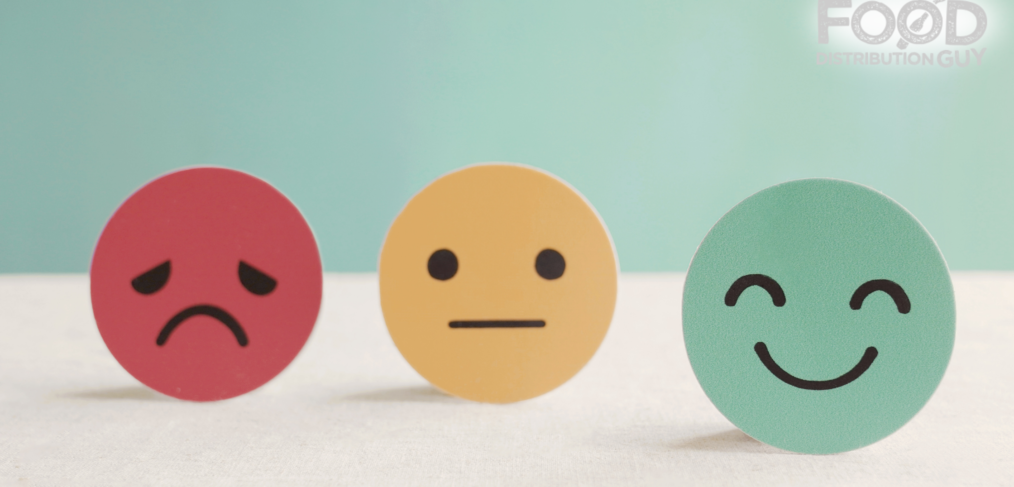
The Surprising Link Between Food and Mental Health
Life has always been about coping with challenges. More than two decades ago I was diagnosed with depression. When I was first diagnosed, I kept it to myself. Today, I still do. Though I feel it is a stigma that I am not proud of, many well known personalities such as Dwayne Johnson, Michael Landsberg, and Michael Phelps have been open about coping with depression. Depression is just one form of mental illness.
The pandemic pushed people beyond their ability to cope and brought light to the term mental illness. “The Covid-19 pandemic exabertated numerous social stressors that we know can increase the risk of both substance use and mental illness”.
Dr. Nora Volkow, Director of the National Institute on Drug Use, October 5, 2022
World-wide surveys done in 2020, and 2021 found higher than typical levels of stress, insomnia, anxiety, and depression. By 2022, those levels had lowered but were still higher than before 2020. Today, more than 90% of Americans say the US faces a mental health crisis.[1] Though many turn to drugs and alcohol, the food sector can play an integral role in mental and brain health.
What is Mental Health?
“Mental health is a state of mental well-being that enables people to cope with the stresses of life, realize their abilities, learn well and work well, and contribute to their community”.[2]
What is the State of Mental Health Today?
According to the World Health Organization, around 450M people currently struggle with mental illness. Closer to home, it affects more than 6.7M Canadians. In fact, one in two Canadians have or have had a mental illness by the time they reach 40 years of age.[3]
What is the Difference between Mental Health and Brain Health?
Though these two terms are related, mental health refers to a person’s conditions that affect a person’s thinking, feeling, and mood. At the same time, brain health is having cognitive, emotional, and social functioning.
What Role Does Food Play in Mental / Brain Health?
Though it is widely known that nutrition plays a key role in your physical health, studies also show that nutrition directly affects our mental and emotional well-being, too. Avoiding sugar and processed foods is key as they can lead to inflammation throughout the body and brain. “To boost your mental health, focus on eating plenty of fruits and vegetables along with foods rich in omega-3 fatty acids, such as salmon. Dark green leafy vegetables in particular are brain protective. Nuts, seeds, and legumes, such as beans and lentils, are also excellent brain foods”.[4]
Simple diet changes can have a powerful effect on brain health. Studies have proven that eating a healthy diet is associated with
1) Better memory abilities, and
2) Lower risk of Alzheimer’s disease.
The Canadian Consortium on Neurodegeneration in Aging (CCNA) is a national hub for collaboration research on dementia. This past April 2023 they released an evidence-based approach to eating for the aging brain.
Here are 5 tips that will assist with brain health:[5]
- Enjoy lots of fruits and vegetables, including berries, and leafy greens.
- Limit red and processed meat.
- Choose fish, beans, and nuts several times per week.
- Limit foods high in added sugar and salt, including cakes, cookies, and fried foods.
- Choose dairy products such as milk and yogurts that are low in fat.
How Can I Take Care of My Mental Health?
Mental health includes emotional, psychological, and social well-being. “There is growing evidence that diet and mental illness are closely linked. Improving your nutrition can directly affect mental health symptoms and improve overall mental wellness”.[6]
Here are some additional tips for taking care of your mental health:[7]
- Get regular exercise: 30 minutes of walking each day.
- Make sleep a priority.
- Focus on positivity and stay connected to friends and family.
I leave you with these 2 quotes to share about mental health:
- “Mental Health is not a destination, it’s a journey”.
- “Your mental health should not be stigmatized”.[8]
References:
[1] 90% of Adults Say the United States is Experiencing a Mental Health Crisis, www.cnn.com, October 5, 2022.
[2] Mental Health, www.who.int, June 2022
[3] The Mental Health Crisis is Real, ww.camh.ca,
[4] Eating Well for Mental Health, www.sutterhealth.org
[5] Brain Health Food Guide, www.ccna-ccnv.ca, April 2023
[6] Diet and Mental Health: How Nutrition Shapes Your Well-Being, www.mcleanhospital.org
[7] Caring for Your Mental Health, www.nimh.nih.gov
[8] 50 Quotes About Mental Health, www.embracehealth.com, May 2023





